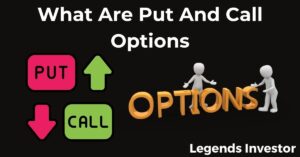Choosing the Right Brokerage: A Comprehensive Guide
If you’re new to the world of trading or looking to switch brokers, you’ve probably realized just how many options are available. The key to success in trading starts with understanding your needs, your financial goals, and what a brokerage can offer you. This guide will walk you through everything you need to know, from setting clear trading goals to evaluating brokerage services, security, and more.
1. Understanding Your Trading Goals
Before diving into brokerage comparisons, it’s essential to have a clear understanding of your trading goals. Different goals require different strategies, and the type of brokerage you choose should align with your overall trading strategy.
Identifying Long-Term vs. Short-Term Goals
Your first step should be deciding whether your focus is on short-term or long-term trading. Are you looking to make quick gains through day trading, or are you planning to hold onto stocks for years to build wealth slowly?
- Short-term goals often involve trading stocks, options, or forex in a rapid manner, where timing is crucial.
- Long-term goals may involve retirement savings, investing in index funds, or building a diversified portfolio over several decades.
Knowing where you stand will help you choose a brokerage with the right tools and features for your needs.
Assessing Risk Tolerance
Your risk tolerance is a critical component of your trading strategy. It refers to the amount of risk you are willing to take in your trades. Someone with high risk tolerance might be more comfortable with volatile stocks or options, while someone with lower risk tolerance may prefer stable, dividend-paying stocks or bonds.
It’s important to honestly assess your comfort level with risk, as this will influence not only your trading strategies but also the type of broker you should choose.
Defining Success Metrics
How will you measure success? Is it by hitting a certain percentage gain, building a stable portfolio, or perhaps maintaining consistent monthly returns? Defining these metrics can provide you with a roadmap for choosing the right brokerage and monitoring your performance over time.
Personal Financial Situation Analysis
Finally, take a hard look at your financial situation. What capital do you have available to invest? What are your financial obligations and liquidity needs? Understanding these factors will help you determine how much you can invest, the risk you can afford to take, and the trading strategy that’s most suitable for your situation.
2. Types of Brokerage Firms
Not all brokers are the same, and understanding the different types of brokerage firms will help you select one that best meets your needs. Each brokerage type offers various services, fee structures, and tools, so it’s important to understand their differences.
Full-Service Brokerages
A full-service brokerage offers a wide range of services, including investment advice, research reports, and financial planning. They often have human advisors who work closely with clients to manage their investments.
While full-service brokers offer a personal touch, they usually charge higher fees. These are ideal for individuals who prefer a hands-on approach with professional guidance.
Discount Brokerages
A discount brokerage provides fewer services but allows you to trade securities at a lower cost. These brokerages are popular among experienced traders who don’t need personalized advice and prefer to conduct their research.
If you’re confident in your investing knowledge and want to minimize fees, a discount brokerage might be the right choice.
Robo-Advisors
A robo-advisor uses algorithms to build and manage a portfolio for you based on your risk tolerance and financial goals. They charge lower fees than traditional brokerages and are ideal for those who prefer a hands-off approach to investing.
Robo-advisors are growing in popularity, especially among long-term investors looking for low-cost, automated solutions.
Direct Access Brokerages
A direct access brokerage is designed for professional traders who require speed and precision. These brokerages offer more advanced trading platforms, faster order execution, and access to multiple markets.
While direct access brokers cater to seasoned traders, they may not be ideal for beginners due to their complex platforms and higher costs.
Comparing Services and Features
When comparing brokerages, it’s important to look at the services and features they offer. Does the brokerage provide educational resources? Do they offer customer support around the clock? Make sure to match their services with your trading goals and preferences.
3. Regulatory Compliance and Security
When investing your hard-earned money, ensuring your broker complies with regulations and provides a secure trading environment is crucial.
Importance of Selecting Regulated Brokers
Always select a broker that is properly regulated by financial authorities. In the U.S., this might mean being regulated by the Securities and Exchange Commission (SEC) or Financial Industry Regulatory Authority (FINRA). These regulations ensure that the broker follows strict guidelines and offers a level of protection to your investments.
Checking for Certification and Licensing
Make sure to verify that the broker is licensed to operate in your country or state. Licensed brokers are more likely to follow industry standards and keep your investments secure.
Security Measures like SIPC and FDIC
Look for brokers that are covered by Securities Investor Protection Corporation (SIPC) insurance, which protects your investments if the broker goes bankrupt. Additionally, check if the broker offers FDIC-insured accounts, particularly for cash balances, to ensure added protection.
Customer Protection Policies
Customer protection should be a priority for your broker. Do they offer two-factor authentication? Is there encryption in place to protect your personal data? Make sure the broker has solid measures to protect against unauthorized access and cyber threats.
4. Commission and Fee Structures
Fees and commissions can add up quickly and significantly affect your returns. Let’s break down what to look for when evaluating brokerage costs.
Understanding Various Fees (Trading, Withdrawal, Inactivity)
Brokerages charge a variety of fees, including:
- Trading fees: Charged every time you buy or sell a security.
- Withdrawal fees: Some brokers charge fees when you transfer money out of your account.
- Inactivity fees: These are charged if your account goes dormant for a certain period of time.
Understanding these fees will give you a clear picture of how much it will cost you to trade and maintain an account with that broker.
Comparing Commission Structures
Different brokers have different commission structures. Some charge per trade, while others may offer a flat monthly or annual fee. There are also commission-free brokers that make their money in other ways, such as spreads or interest on cash balances.
Hidden Fees to Watch Out For
Be wary of hidden fees, such as those for account maintenance or data feeds for advanced charts and analysis tools. Always read the fine print so you know exactly what you’ll be charged.
Evaluating the Total Cost of Trading
Once you’ve identified all potential fees, calculate the total cost of trading based on your expected trading volume. A brokerage with low commissions but high inactivity fees may end up costing you more than one with slightly higher commissions but fewer hidden costs.
5. Trading Platforms and Tools
Your trading platform is the gateway to the financial markets, and its usability can make or break your trading experience.
Platform Usability and Interface
Look for a trading platform with an intuitive interface that is easy to navigate. Whether you’re a beginner or an experienced trader, you want a platform that makes it easy to place trades, analyze markets, and track your performance.
Charting and Technical Analysis Tools
If you’re a technical trader, access to advanced charting tools and technical analysis is critical. Some brokerages offer sophisticated platforms with a range of indicators, drawing tools, and chart customization options.
Research and Educational Resources
For beginners or those looking to sharpen their skills, consider brokers that offer a wealth of educational resources, including tutorials, webinars, and research reports.
Mobile and Web-Based Trading Options
Ensure the broker offers both mobile and web-based trading platforms. Mobile trading apps allow you to manage your portfolio and make trades on the go, while a web-based platform provides the functionality and depth you need when trading from a desktop.
Customization and Integration Capabilities
Some traders may want to integrate external software or customize their platform to suit their specific strategies. Check if the brokerage offers API integration or allows for platform customization to meet your needs.
6. Customer Service and Support
No matter how experienced you are, there will come a time when you need help. It’s important to choose a broker that offers reliable customer support.
Availability of Customer Support (24/7 vs. Limited Hours)
Some brokerages offer 24/7 customer support, while others have limited hours. Depending on your trading schedule, you’ll want to ensure that support is available when you need it.
Quality of Customer Service (Reviews and Ratings)
Check out online reviews and ratings to see what other customers are saying about the quality of customer service. Are support reps helpful? Do they resolve issues quickly?
Support Channels (Phone, Email, Live Chat)
Look for brokers that offer multiple support channels, such as phone, email, and live chat. Live chat is particularly helpful if you need quick answers while trading.
Help and Educational Resources for Beginners
If you’re new to trading, it’s worth choosing a broker that offers extensive educational resources, such as beginner guides, video tutorials, and personalized support to help you get started.
7. Account Types and Minimums
Understanding the types of accounts and minimum deposit requirements can help you determine which broker is the best fit.
Different Types of Accounts (Individual, Joint, IRA, etc.)
Different brokers offer various account types, including individual taxable accounts, joint accounts, and retirement accounts such as IRAs. Make sure the broker you choose offers the account types that suit your financial goals.
Minimum Deposit Requirements
Many brokers have minimum deposit requirements to open an account. Some brokers cater to small investors with no minimums, while others may require
$1,000 or more to get started.
Special Offers and Promotions
Some brokers offer promotions for new customers, such as cash bonuses, free trades, or reduced commissions. These offers can be enticing, but make sure they align with your overall trading needs.
Account Maintenance Fees
Be mindful of any account maintenance fees. These could be charged annually or monthly, and they can eat into your profits if you’re not careful.
8. Order Execution and Trade Quality
Efficient order execution and high trade quality are essential for ensuring your trades happen as intended.
Speed and Reliability of Order Execution
The speed and reliability of order execution can have a significant impact on your trading outcomes, especially for day traders. Look for brokers with a reputation for fast and accurate trade execution.
Slippage and How It’s Handled
Slippage occurs when the price at which your order is executed differs from the expected price. Some brokers handle slippage better than others, so make sure to understand their policies.
Order Types Supported (Market, Limit, Stop-Loss, etc.)
Your broker should support a variety of order types, such as market orders, limit orders, and stop-loss orders. These tools give you greater control over how and when your trades are executed.
Quality of Trade Execution and Reviews
Check trade execution reviews to get a sense of how well the broker performs in real-time market conditions. You can find these reviews on financial websites or forums where traders share their experiences.
9. Reviews and Reputation
A broker’s reputation can tell you a lot about their trustworthiness, performance, and customer service.
Importance of Reputation in the Brokerage Industry
The reputation of a broker is a critical factor when making your decision. A broker with a long history of satisfied clients and transparent operations is likely a safer bet than one with a history of complaints or regulatory issues.
Where to Find Reliable Reviews and Ratings
You can find reliable reviews and ratings on financial websites, forums, and independent review platforms. Be sure to look for multiple sources to get a well-rounded view of the broker’s performance.
Testimonials and Personal Experiences
Reading testimonials and personal experiences from other traders can give you insights into what it’s like to trade with a particular broker. This can help you avoid brokers with hidden issues or poor service.
Red Flags and Warning Signs to Watch For
Be cautious of brokers with numerous complaints about poor customer service, hidden fees, or slow order execution. Red flags like regulatory actions or unresolved disputes can indicate that a broker may not be trustworthy.
Analyzing the Overall Track Record
Finally, consider the broker’s overall track record. How long have they been in business? Have they won any industry awards? Are they well-reviewed across different platforms? A strong track record can give you confidence that the broker will provide a positive trading experience.
Choosing the right brokerage firm is crucial for your trading success. By understanding your goals, risk tolerance, and what features and services are important to you, you can find a broker that aligns with your trading strategy. Use this guide as a reference to make an informed decision and set yourself up for success in the world of trading.



